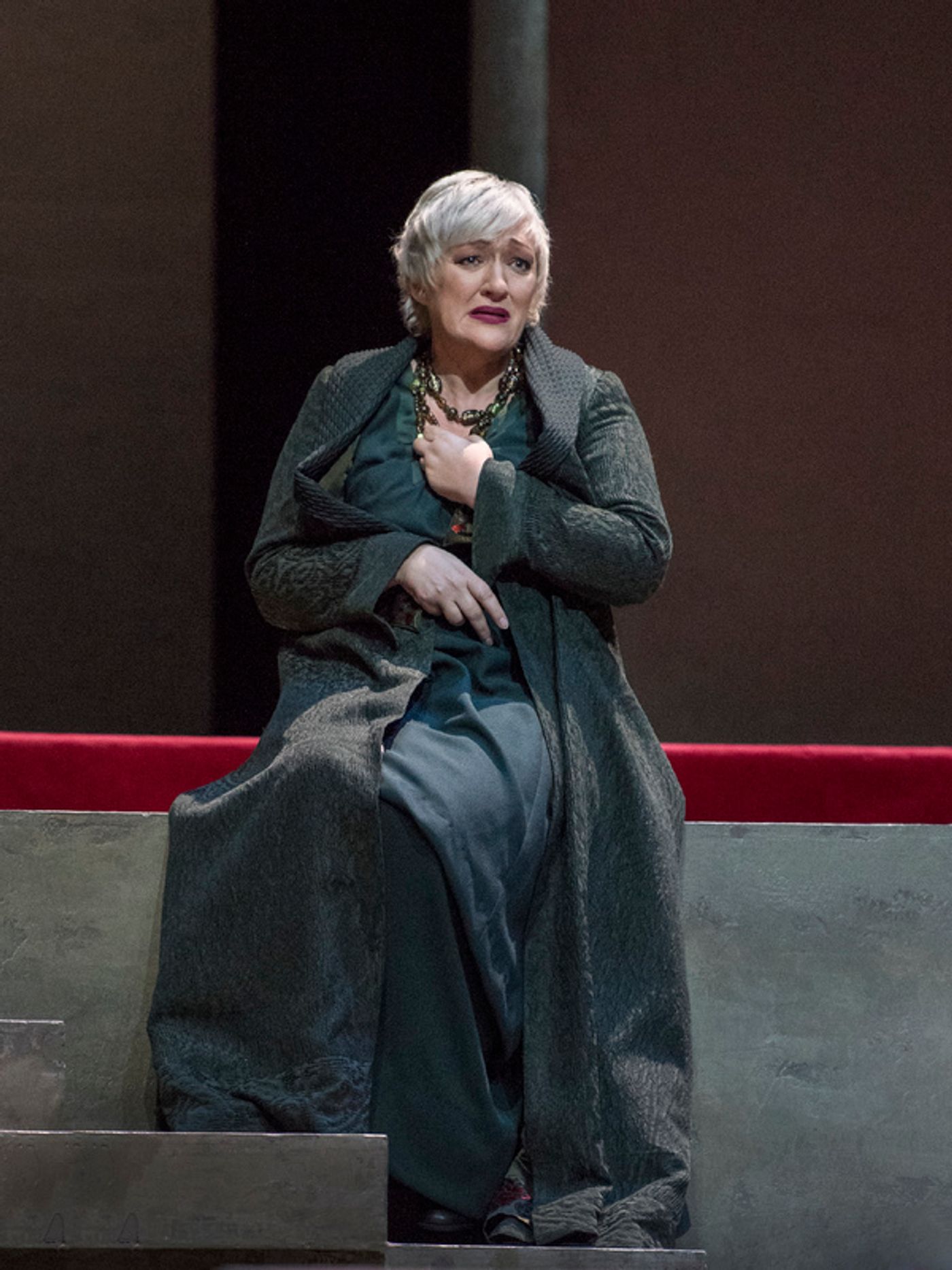Review Roundup: What Did The Critics Think of ELEKTRA at the Met?
 Christine Goerke sings her first Elektra at the Met in Patrice Chéreau's landmark production, a sensation at its Met premiere last spring, which the Wall Street Journal called "revolutionary ... a triumph on all fronts." Yannick Nézet-Séguin conducts Strauss's shattering score, a tour de force for the singers and the orchestra alike.
Christine Goerke sings her first Elektra at the Met in Patrice Chéreau's landmark production, a sensation at its Met premiere last spring, which the Wall Street Journal called "revolutionary ... a triumph on all fronts." Yannick Nézet-Séguin conducts Strauss's shattering score, a tour de force for the singers and the orchestra alike.
World premiere: Court Opera, Dresden, 1909. Met premiere: December 3, 1932. Shortly after conquering the opera world with his scandalous masterpiece Salome, Richard Strauss turned to Hugo von Hofmannsthal's recent adaptation of Sophocles's Electra for his next project. The resulting opera is an intense and still-startling work that unites the commanding impact of Greek tragedy with the unsettling insights of early-20th-century Freudian psychology. The drama unfolds in a single act of rare vocal and orchestral power.
Met performances of Elektra have been dominated by a succession of outstanding singing actresses who took on the tour-de-force title role: Rose Pauly (pictured here with Paul Althouse as Aegisth) in 1938, Astrid Varnay in 1952, and, beginning in 1966, Birgit Nilsson, who often starred opposite Leonie Rysanek as Chrysothemis and Regina Resnik as Klytämnestra. In the first few decades, Elektra frequently shared the stage on double bills with such unlikely companions as Gianni Schicchi, Pagliacci, or Menotti's Amelia Goes to the Ball.
Let's see what the critics have to say!
Anthony Tommasini, The New York Times: The mezzo-soprano Michaela Schuster had a notable Met debut as the guilt-ridden Klytämnestra. She brought glint and terror to moments when her fears took hold, and was even more chilling when she unfurled her scheming thoughts in breathy utterances.
David Salazar, Opera Wire: But that isn't to say that the soprano wasn't a force in some moments. Her opening monologue was arguably her finest moment vocally, the very first "Allein" booming through quite menacingly. Throughout the extensive passage her voice built up furiously, the articulation of the text growing more pointed and the high notes vicious and powerful.
Mark McLaren, ZealNYC: Mikhail Petrenko sings Orest smartly and his acting lines up nicely with this production. In an opening scene that is engaging, Susan Neves, Tichina Vaughn, Maya Lahyani, Andrea Hill, Kelly Cae Hogan and in a debut Lisa Gwyn Daltirus all produce.
George Grella, NY Classical Review: Chereau's staging (assisted by Caroline de Vivaise's plain, contemporary style costumes) hits the mark right at the point. The action takes place in the courtyard at the Palace of Mycenae, and the entrance to the palace at the back of the stage looks like a bandshell, a self-conscious admission that this is a performance, artifice. The plain exactitude of the sets lets the fecundity of the music do the work, and offers a refreshing and measured perspective.
Reader Reviews
Videos
